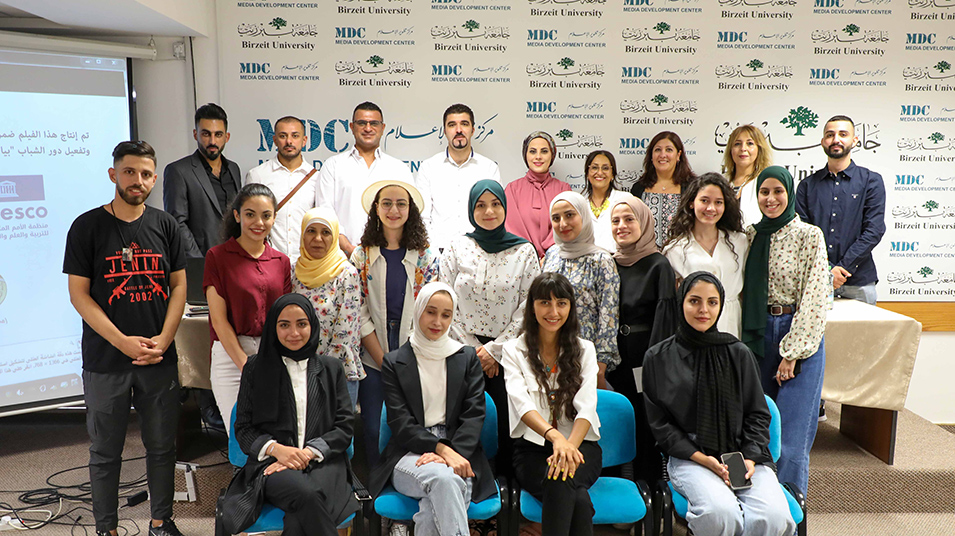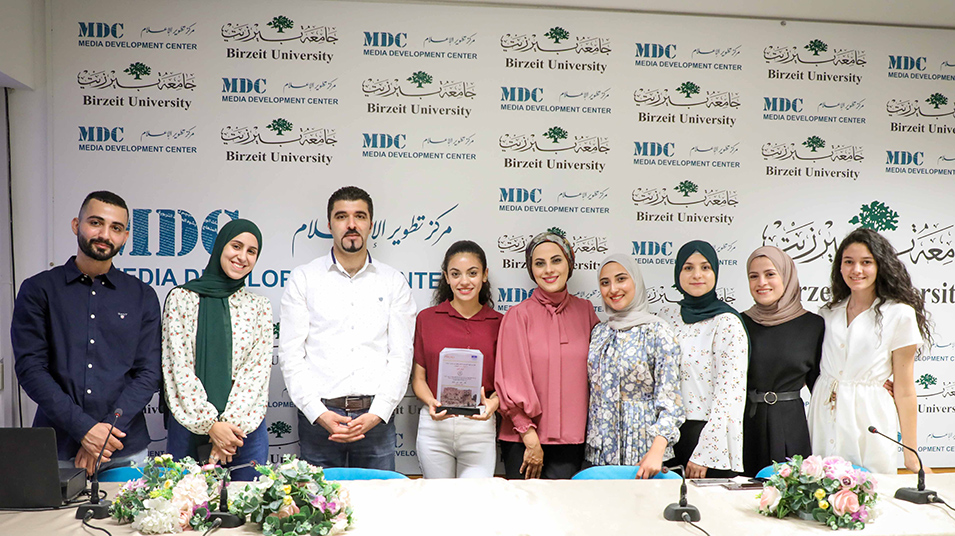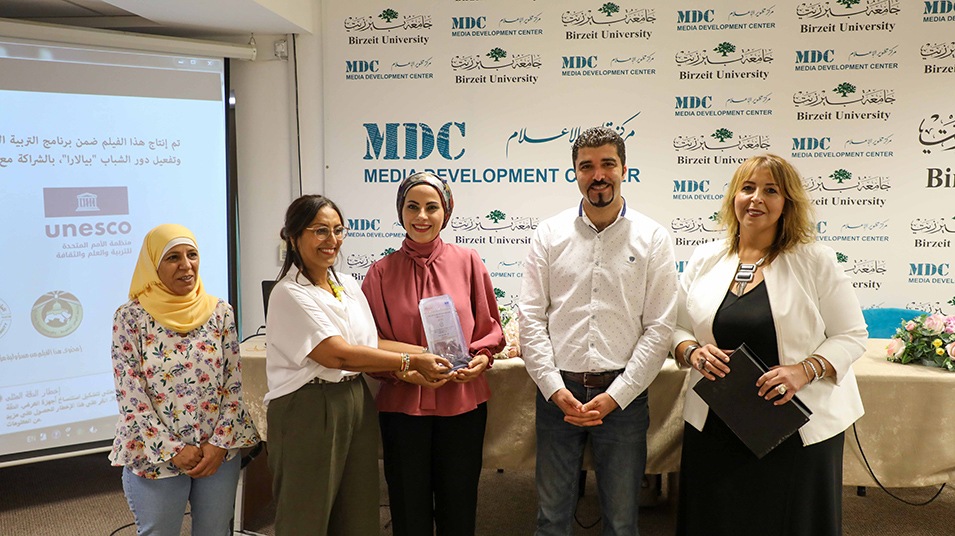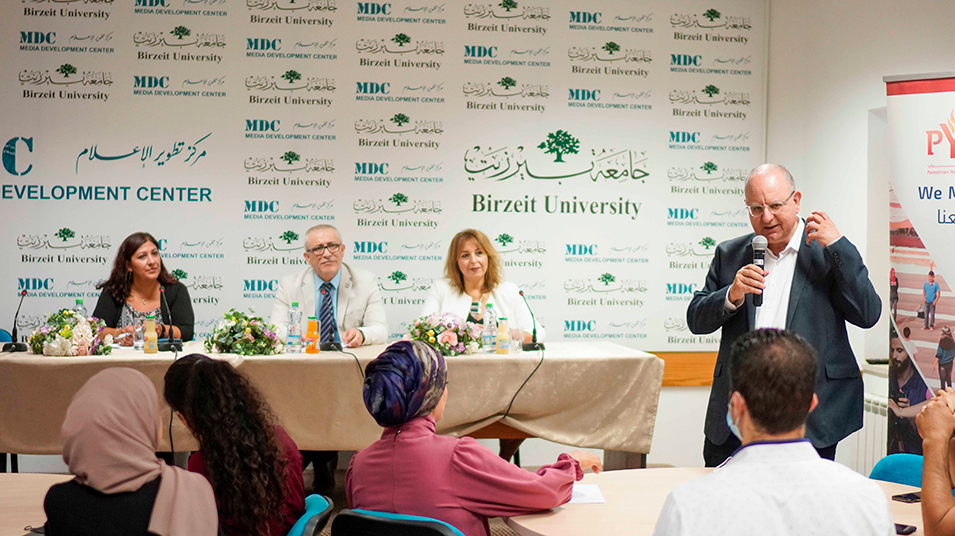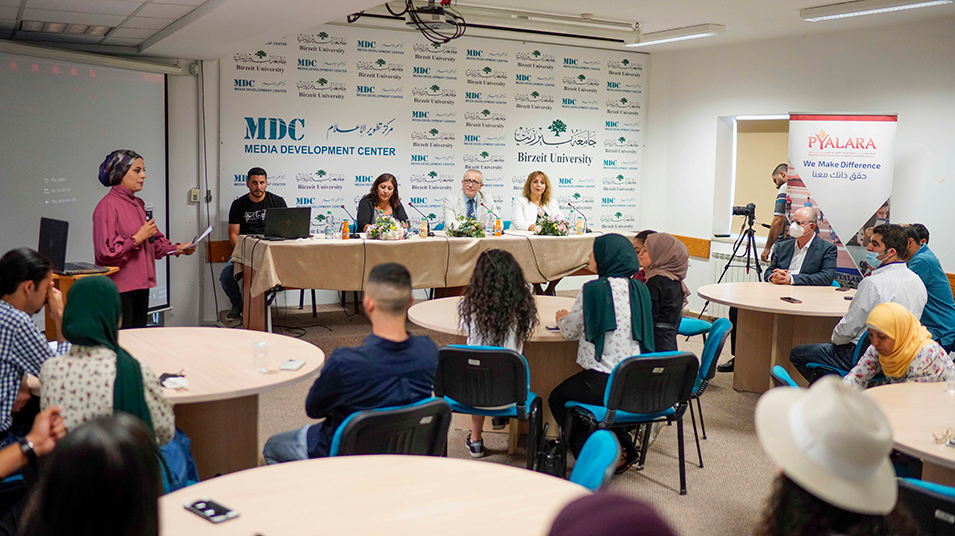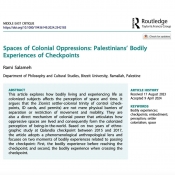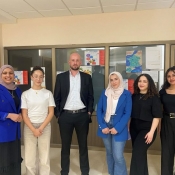University students win first place in media and information literacy film competition
A team of Birzeit University media students has recently won first place in a short-film competition held as part of a media information literacy program organized by the Palestinian Youth Association for Leadership and Rights Activation (PYALARA) together with UNESCO and several Palestinian universities.
The program aims to raise awareness of the importance of critically engaging with media and information in the digital age, especially as more services move online with the spread of the COVID-19 pandemic, through workshops, seminars, lectures, and participatory activities.
The competition saw teams of students from Birzeit University, the Arab American University, Al-Quds Open University in Gaza, Bethlehem University, and the Palestine Technical University — Khadoori create short films that highlight important issues related to media and information literacy, such as critical analysis of information sources, cyberbullying, and digital safety.
Dr. Beshara Doumani, Birzeit University’s incoming president, stressed in his welcoming remarks the importance of nurturing the creativity and innovation of students, giving them the space and means to reach their full potential and advance and develop the university to stand as a model for the future of Palestine. Cooperation between the different constituents of the university’s community, he added, is the key to achieving its mission.
Dr. Talal Shahwan, the newly appointed vice president for academic affairs at Birzeit University, praised the efforts of the participating students and their instructors, saying that the films that they produced helped highlight pertinent issues in media and information education that spur academic societal development in these fields. The cooperation between Palestinian and international experts and faculty members, he noted, serves as an exemplar for future initiatives that benefit students, faculty, and staff members at all the partner institutions.
Jumane Qunnaisse, a media instructor at Birzeit University’s Department of Media who led the winning team, said that the program aligns neatly with the department’s mission to keep students abreast of the latest developments in media and journalism. In addition to organizing and taking part in various extracurricular lectures, workshops, and seminars, the department constantly updates its programs and modules to keep up with advancements — especially in digital media — in the field, she added.
Noha Bawazi, head of office and representative of UNESCO in Palestine, highlighted the necessity of media and information literacy to the well-being of communities all over the world, as it allows individuals to critically evaluate information and the sources thereof and make their own informed decisions on how and where to use it.
Bawazi stressed that initiatives such as the media information literacy program are at the heart of UNESCO’s mission, as they equip people with the skills to counter disinformation and critically assess information, especially during the COVID-19 pandemic, which has accelerated the move towards online-only news and information consumption.
Hania Bitar, the director-general of PYALARA, discussed in her address the benefits of cooperative initiatives such as the media literacy program in developing the skills and awareness of Palestinian youth. She praised the dedication and enthusiasm of students who took part in the program, adding that such eagerness to learn and apply knowledge in the real world shows the need for a media information and literacy curriculum that should be taught in all Palestinian universities.
Birzeit University’s team won first place for their film, “Boxes,” on critical thinking and engagement with traditional sources of information; the Arab American University’s team won second place for “Mole,” which discusses cyberbullying; and Al-Quds Open University’s team won third place for “What’s Next?,” which explored issues regarding digital safety.

